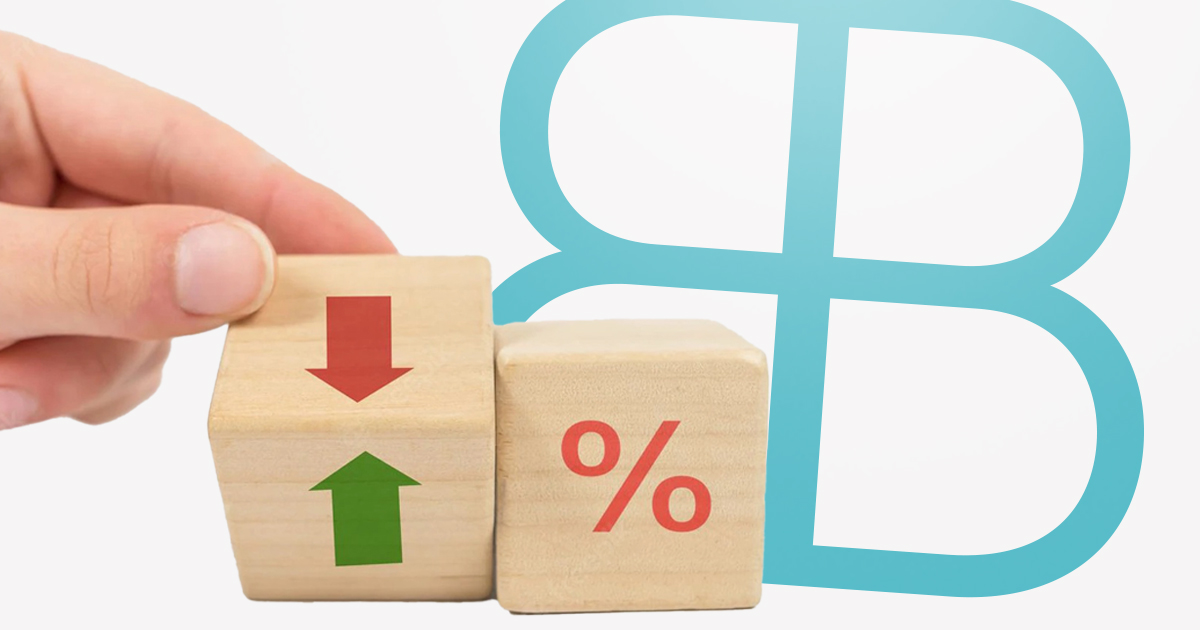How to Prepare for an Interest Rate Rise

When the Bank of England base rate changes, it has a number of financial knock-on effects, including fluctuating mortgage rates, savings interest rates and loan interest rates.
Many current homeowners will not have experienced a Bank of England base rate higher than 0.75%, as it has been 0.75%, 0.50% or 0.25% since March 2009.
Prior to this, the base rate had been at 5% just six months earlier.
At the highest ever point, it reached 15% in 1981, so the difference in the market now is huge compared to buying property 40 years ago.
People who are considering buying a home should establish a good understanding of how the BoE base rate could impact their future mortgage payments, as even a slight change in the rate can result in a significant increase in the amount they pay back over the term of the mortgage.
In the following sections, we discuss the possible impact of an increased interest rate on mortgages, loans and savings.
We will also share some tips on how to prepare for the expected changes.
What does an interest rate rise mean?
The interest rate is decided by the Monitory Policy Committee within the Bank of England.
They hold a meeting every month where they decide whether the interest rate should change or remain at the same rate.
There is a Monetary Policy in place that determines whether the rate is to get altered, for example, if the demand for funds is there.
Economic growth is a key factor, so it is anticipated that the impact of Brexit could well lead to an increase in the rate at some point in the future.
With the base rate standing at 0.75% (December 2019), over the next few months and years, as the full impact of Brexit becomes clearer, we could experience an interest rate increase that will affect mortgage loan rates, savings rates and loans rates.
What happens when interest rates rise?
When the BoE rates rise, banks will usually change their rates for saving and borrowing in accordance with the change.
Therefore, the banks will increase their interest rates, meaning that mortgage deals work out more expensive.
Whilst a 0.25% increase might not sound like a huge amount, over the course of a 25-year mortgage, it is a lot more interest to pay.
Therefore, it is important for homebuyers to understand the impact of rate changes and the different types of mortgages that are available i.e. tracker mortgages and fixed-rate, so they know what they could end up paying if there is an interest rate increase.
Impact of interest rates rise on mortgages
Mortgages are usually the biggest loan any person will ever take out and the interest rates will have a very significant impact on mortgage rates.
For people who are currently looking to take out a mortgage loan, any interest rate increase that is introduced before they take out the mortgage will impact the rates that are available for them.
For example, whilst Lloyds are currently offering a 1.24% fixed rate for three years, and an interest rate increase of 0.25% could see this increase by the same amount, meaning the mortgage borrower would be paying more back in interest over the term.
When there is uncertainty around whether interest rates will increase, many homebuyers choose to take out a fixed-rate mortgage to ensure that their mortgage remains the same for the agreed period, even if there is a BoE rate increase.
For existing fixed-rate mortgage holders, interest rate increases would only affect them when their fixed term comes to an end.
Usually, they will then renegotiate another mortgage when they get to the end of that fixed period, to ensure that they are still on a good mortgage deal.
Tracker mortgages, or variable mortgages, track the base rate, so whenever the BoE has an increase (or decrease) the mortgage payments will do the same.
This type of mortgage deal is considered to be more of a gamble, especially in times when there is economic uncertainty such as the current situation.
If you take out a tracker mortgage and the base rate went up to 5% then you would be paying 4.25% more interest on your mortgage.
Free phone and video consultations are provided in the U.K.
Get StartedHave a financial plan in place
Before you agree to take out any type of mortgage, you need to ask yourself a lot of ‘what if’ questions.
Particularly if you are considering taking out a variable mortgage, ask yourself ‘What if the rate went up by X%, could I still afford to make the mortgage payments?’.
If you take out the fixed-rate mortgage, you won’t need to worry about increases in that fixed period but you do need to ask yourself if you could afford the higher amount of interest that you would go onto after your fixed term ends.
Again, the usual scenario is that a new fixed-rate mortgage deal would be agreed, to avoid paying the higher interest rates.
However, if the base rate was to ever get up to 5% again, then you will need to understand how much that will make your monthly payments.
Whilst an increase as high as 5% is not currently predicted as likely, you should work out how the different increase increments would affect your monthly payments.
Example calculation
A 2% increase on a monthly mortgage payment of £900 with an interest rate of 2.5% would work out at over £200 more to pay each month.
Tips for managing an interest rate rise on your mortgage
If there is an interest rate increase, here are some top tips to help you to prepare:
Check your current mortgage deal
The first thing you need to do is check what deal you are on and how much interest you are paying.
If you are within a fixed period or face early repayment charges, find out when the period finishes.
If you cannot find your mortgage paperwork, call your mortgage provider and ask them to send you a copy.
Calculate the impact of an increase
Next, you need to work out how an increase would impact your monthly payments.
So, calculate your payments based on a 0.25%, 0.5% and 0.75% increase to get an idea of what you could potentially face in the future.
Work out your monthly budget
The next step is to calculate your monthly budget, with all of your outgoings and income, to check how much you can realistically afford to be paying on your mortgage.
This could be an opportunity to revise some of the regular outgoings that you might not need to be paying if you are worried that you won’t be able to afford your mortgage if an increase happens.
See What Our Clients Have To Say
Improve your credit score
If you don’t currently have the highest credit score, then now is a good time to try and improve it.
This will help you to get a better deal when you next take out a mortgage deal.
So, use a credit score check like Experian to see where you can improve your score, make sure you are on the Electoral Roll, try and clear any debts and don’t try to take out any more credit in the coming months.
Compare your mortgage deal
If your current deal is either at the end of the fixed period or approaching it then you should check whether there are any better rates available.
Whenever your mortgage deal comes to an end it is a good idea to compare and switch to get a better deal.
You may need to factor in any early repayment charges, but you might be able to find a much cheaper deal.
Overpay on your mortgage
If your current mortgage deal allows you to overpay, if you can afford to overpay your mortgage then this will help you in the future if the interest rates increase.
By paying off more of your mortgage this way, there will be less of your mortgage outstanding when the rate increase comes into play.
Conclusion
Hopefully, that will have given you a much better idea of how an interest rate increase could affect your mortgage payments and the different ways that you can prepare for this kind of change.
With saving rates being so low right now, overpaying your mortgage is usually a better financial option than keeping savings in a bank account.
Taking steps to improve your credit score, by making your payments on time and not applying for any credit will ensure that you are in a better position to get the best mortgage deals when it is time to switch.
Always stay up to date with the current deals available on the market, to see whether you would be better switching to a new provider or different deal.
If you would like any advice on preparing for an interest rate rise, then call Boon Brokers to have a chat.
Gerard BoonB.A. (Hons), CeMAP, CeRER
Gerard is a co-founder and partner of Boon Brokers. Having studied many areas of financial services at the University of Leeds, and following completion of his CeMAP and CeRER qualifications, Gerard has acquired a vast knowledge of the mortgage, insurance and equity release industry.Related Articles
- How To Get A Mortgage With A New Job
- Is Checkmyfile Trustworthy
- How To Build Home Equity
- How Much Deposit Do I Need For A Mortgage
- How Does Being Self Employed Affect A Joint Mortgage?
- Fixed Rate Mortgage
- What Is A 5X Mortgage?
- How To Not Get Ripped Off By A Mortgage Broker
- How To Avoid Early Repayment Charges
- How To Get A Mortgage After Bankruptcy
- What Is An Offset Mortgage?
- Can I Overpay My Mortgage?












